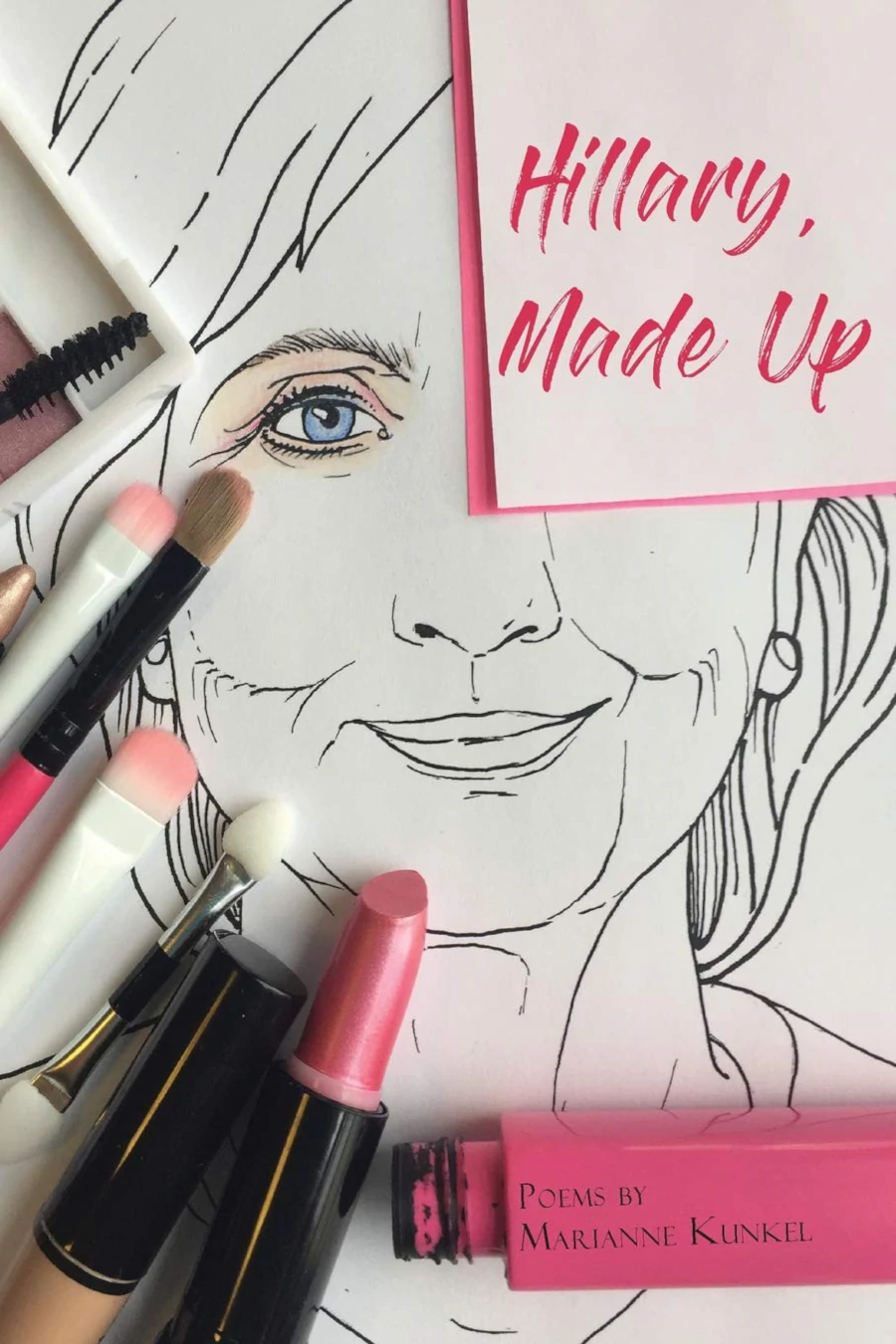
Making Peace with the Past to Make Way for the Future: A Review of Marianne Kunkel’s Hillary, Made Up
Words By Jordan Charlton
Hillary, Made Up is a collection of elegies to the results of the 2016 Presidential Election, a reflection of the memories and the enjoyment formed from the process of presidential hopeful Hillary Clinton’s pursuit of the White House. These poems reflect on the history of women’s marginalization in America as well as the progress they have made. And though they explore the difficulties that come as a result of opportunity, they remain hopeful for the future.
Each poem in this collection is a persona poem that serves as an ode to their subject. Kunkel deftly selects makeup instruments like eyelash curlers, foundation, and scrunchies to create a close space with the subject. These choices allow the poet to enter an intimate proximity to the subject without getting into her head. The persona poems are organized by three movements from the eyes to the skin and finally the hair.
A major strength of this collection is found in the way the poet does not merely praise the progress of women and lament the loss of the former Democratic nominee. Instead, Kunkel aims further to explore the ways in which, as a country, Americans can remain hopeful for the future while having gotten things wrong in the past. In the final lines of the poem “Brow Pencil to Hillary” (16), the personified pencil declares:
Just think, girls
today preserve each strand of power,
aware their mothers chase substitutes
aware strong brows are only the beginning.
In this way, the personified speaker makes sure to reference some of women’s histories while also envisioning the progress that can come from a future where women can be valued for more than just their appearances. In this future, the women of tomorrow can possess powers that might never have been dreamt of by their mothers. However, the poet steers clear of making this a one-sided affair; Kunkel is clear to include women with different ethnic backgrounds into this shared hope as well. The poem “Eye Shadow to Hillary” (25) shows this when the speaker says:
I dream of a day my owner works
for a Presidential hopeful who's not white
and more of my shades are dipped into,
her eyelids ushering in a rainbow.
While Hillary, Made Up is deeply concerned with beauty, the collection reaches down deeper than just on the surface with its touch. In this collection, beauty (or at least, a socially formed standard of beauty) is an aesthetic that allows the poet to enter into moments of great intimacy with her subject. These poems are like imagined forms of ekphrasis where the subject is seen in moments of great tension and revered as a beacon of hope. They also reflect on a multitude of issues that exist within the American political landscape, as Kunkel uses epigraphs and asides to reflect the flaws in this system.
In any collection of poems written as elegies, it can be difficult to read joy into the writing. While Kunkel’s poems do not hint at any form of contentment, they do interrogate the space left from a loss that has had widespread impact to many across the United States, and across the world as well. Hillary, Made Up utilizes cosmetics and other beauty products to show the flaws in a failing political system. In these small ways, we see big impacts.
Marianne Kunkel is the author of Hillary, Made Up (Stephen F. Austin State University Press) and the chapbook The Laughing Game (Finishing Line Press). Her poems have appeared in The Missouri Review, The Notre Dame Review, Hayden’s Ferry Review, and elsewhere. She is an Assistant Professor of Creative Writing and Publishing at Missouri Western State University, where she directs the creative writing program.